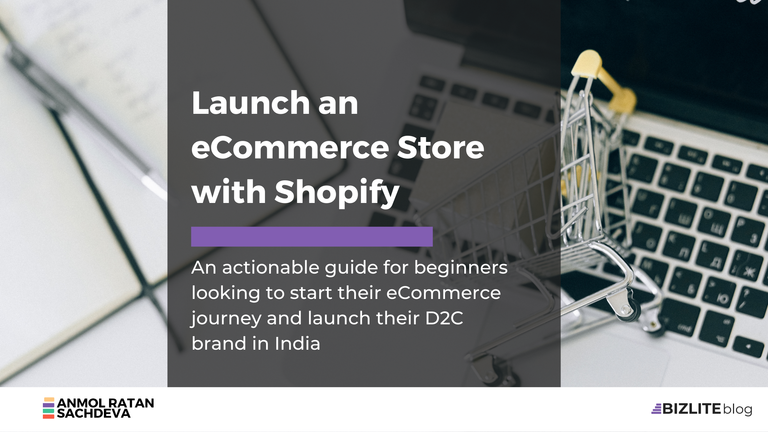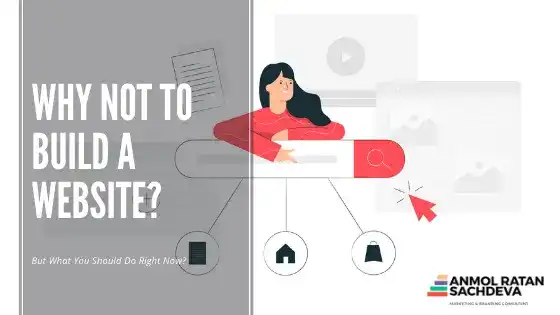7 Ways to Find Money to Start Your Business in India
Imagine...you’ve got an idea. You’ve done the research. You start building. But then the shop-owner says: “6-month security deposit required.” Your savings only cover 2–3 months. You have a choice: secure space or pay your small team? You feel stuck.
That’s the moment lots of entrepreneurs hit (and most don't start just because of this), your product or plan might be good, but cash becomes the gatekeeper.
I’ve faced situations like this, early on.
In fact, 66% of all small businesses face financial challenges during operations.
I started from a small town, no fancy background, no safety net: just a willingness to learn. Today nothing about funding sounds theoretical to me.
So here are 7 real ways to find money (or funding options) that you can use to move even when things feel tight.
Friends & Family
If you've been reminding everyone about your ‘fatherly connections’ all your adult life, maybe it's time to really utilize the privilege.
Financing your idea through friends and family round is a legit idea.
According to industry estimates, over one-thirds of startup founders raise money from friends and family.
Many successful startups like have gone to friends and even family to get starter capital. It's just like loaning money for something else, but this time, for something serious.
Ask your well-networked friends or that relative you've always seen flaunting his network or money.
When I was beginning, I leaned on close contacts. Loans from family or trusted friends can help cover your rent, security deposit, or initial setup. But treat it like a business commitment. Be clear: how and when money will be repaid, what the plan is, and how you’ll update them.
Read More
- How to Raise & Spend ‘Friends & Family’ Money for your Startup?
- A Guide to Friends & Family Funding for Startups?
Bootstrapping (Your Own Sweat & Savings)
If I’d waited for perfect funding, I might have never started my first venture. I used savings, ran small experiments, validated products, and reinvested revenue.
Bootstrapping forces discipline: you learn to spend only on what truly matters: customers, product, and honest growth.
It’s messy. But it keeps you in control, avoids dilution, and gives you ownership of failures and wins.
A bootstrapped startup is one that uses the paucity of funds to its advantage. Instead of trying to impress investors, you spend more time on bringing customers onboard.
Ironically, almost all our small businesses in India have been bootstrapped. Ask your parent on how they started the business. Chances are you'll get a unique take on bootstrapping.
Shark Tank
If you've not gone through this blog much, you'd be confused. But as I have been fascinated by the Shark Tank format (Not the Indian version much), I felt adding this way to the list.
But a few disclaimers first: Shark tank might be your shot to fame, but in 2022, they don't fund crude ideas. Better have some form of traction or prototype before pitching.
When shark tank originally started in 2008, the world was recovering from a recession and banks were not eager to lend loans for business ideas. Even venture capital wasn't an option.
So, ABC network brought together a panel of six who were ready to listen to an idea and fund it, if they found value.
Over the last 15 years, billons have been raised on Shark Tank globally. Some shark tank products went on to become multi million businesses too.
Seems surreal, right? But who knows, you might be in for some luck.
Crowdfunding
Cheekh cheekh ke sabko scheme bta de
Well, if you're thinking of creating a viral consumer product, and have some cool marketing angles, crowdfunding can work for you.
Crowdfunding is the process of getting money from hundreds of people who back your idea through money. In return, they expect early access to product, freebies, or something else.
Kickstarter, Indiegogo, GoFundMe are all popular crowdfunding platforms that allow people to fund creative projects. You can use these sites to find investors or potential donors.
Crowdfunding has become a popular way for entrepreneurs, artists, inventors, and other creative types to bring their ideas to life.
Some people use crowdfunding platforms to launch their business, while others use it to fund their passion project. Whatever your reason for using crowdfunding, it’s an easy way to get the word out about your project and potentially raise the funds you need.
Venture Capital or Angel Funding
If you have big ambitions (scaling fast, product-market fit, repeatable revenue), VCs might be interested in your growth story. The official Startup India portal lays out how equity or debt investments are approached, stages defined, and what investors look for.
A VC listens to your pitch, does his due diligence, and agrees to file a term sheet. You have to dilute your control and offer equity in lieu of the fund.
VC fundings is a great way if you're in tech business and are looking for network, connections, and mentorship from an established business tycoon or venture capital fund.
Then there is angel investment. It is a type of financing that is offered to a business owner who has a great idea but is not able to get funding for his or her business from other sources.
Angel investors are individuals who provide financial backing for a new or existing business. They invest their own money into a business, instead of lending money to someone else.
Angel investors are not employees, shareholders, or lenders of the business. They are not involved in the day-to-day operations of the business, and they do not have any say in how the company is run.
The main drawback of angel investment is that you have to work with the investor to make sure that they get their money back.
You might want to consider angel investment if:
- You don't have the time, energy, or resources to do all the research and planning to launch your business.
- You're looking for quick cash to get started.
- You want to focus on the business side of things, and don't want to deal with the customers and sales.
If you decide to go down this route, the first thing you need to do is to find someone who will invest in your business. You can find angels through your local chamber of commerce, online, or through friends.
Once you've found an angel, you need to decide how much money you need to get started. The amount you ask for depends on the size of the investment, and the amount of equity you offer the angel.
You'll also need to agree on a repayment schedule. You might want to pay back the money over a set period of time, or you might want to pay it back in installments.
If you get the money, you'll have to prepare a business plan and pitch the angel on the idea.
The angel might want to see the business plan before he or she invests. The business plan should include:
- A description of the company, products, and services
- An explanation of your target market
- A marketing plan
- A financial plan
- A list of competitors
- A business plan
You might also want to make sure that the angel has a good reputation. Ask for references, and make sure they're willing to put their money where their mouth is.
If the angel agrees to invest in your business, you'll need to find a lawyer to handle the legal aspects of the deal. You'll also need to decide whether you want to have an equal share of the company, or whether you want to give the angel a bigger share.
Once you've agreed on the terms of the investment, you can start working on the business plan.
Government schemes/ incubators
Gone are those days when government could only promise a stable employment.
India has official programs to back startups and small businesses: Startup India offers funding support, grants, and equity/debt financing options. (Startup India)
- Under the Startup India Seed Fund Scheme you can access financial support to build prototypes, carry out product trials, and scale. seedfund.startupindia.gov.in
There’s also financial assistance via Credit Guarantee Fund Trust for Micro and Small Enterprises (CGTMSE) which provides credit assurance (reducing need for traditional collateral) for micro and small enterprises. Wikipedia
Tip: Applying to these programs may require time and documentation. But once you’re recognized, they can unlock capital without sacrificing equity.
Customer Presales & Pre-orders
Launch a waitlist, run some ads. The book The $100 Startup has some amazing advice on using this tactic.
I’ve tested early order models myself: customers paying or booking early lets you validate demand, and use that capital to build.
If you have some understanding of the online world, and your audience, launching a presales campaign is an amazing opportunity for you to start your business the right way.
Not only will it ensure that you have a product market fit, but you'll already have a ready base of customers when you begin.
But treat presales like a commitment: deliver what you promise. Because the trust you build here becomes your strongest asset.
This method helps you avoid risky borrowing or complicated fundraising rounds if demand is proven from day one.
Side Hustles /Part-Time Income
In my early days, I kept other income streams: writing gigs, consulting, even odd-jobs, to support lean product development.
These side incomes gave me runway to test ideas, refine them, and avoid risky debt or sacrificing control. Building alongside a job can feel slow, but it’s low-risk and gives you space to fail, learn, and pivot without pressure.
Reality Check: What You Must Know
Nearly all small businesses in India face financial & cash-flow challenges, especially in early months/years.
Plan your finances. Don’t jump to big funding rounds without showing the story of traction, customers, or viability.
When you take outside money: stay transparent, set milestones, and treat it as a partnership, not a safety net.
Final Word (From Someone Who’s Been There)
I’ve seen founders sitting beside me in small town homes, arguing over building inventory vs. hiring help.
I’ve been there asking myself whether to invest my savings now or wait for the “perfect capital moment.”
What helped? Clarity. Systems. Thinking weeks ahead even when funds were tight.
If you’re building from scratch, and you feel like “I don’t have enough,” pick one method above that matches your comfort. Start small. Learn on ground. Scale the way you feel confident.
Money matters. But resourcefulness, grit, and clarity matter more.



